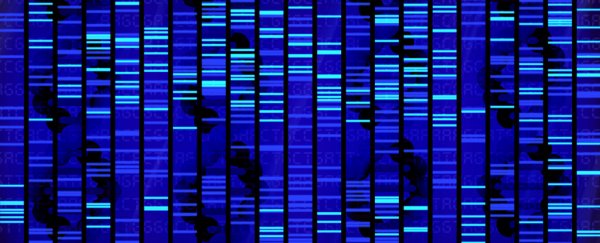It wasn't all that long ago that the first human genome was sequenced – a massive, globally orchestrated scientific undertaking that took years and some US$3 billion to achieve.
Since then, rapid advancements in genetic technology and techniques have seen the cost and time required for genome sequencing drop dramatically, leading to this week's remarkable announcement: the first whole genome sequencing service for consumers that costs less than $1,000.
At just $999, myGenome, from US-based genetics startup Veritas Genetics, is being billed by its makers as the first practical and affordable way for people to access unparalleled personal data on their individual genetic code. The company claims its personalised service offers an accessible way to keep tabs on your current health, keep you abreast of any potential future issues, and even know what inherited genetics you might pass onto your children.
For your cash down, myGenome gives you a digital report on your whole genome, and an app to interact with your data, plus assistance with interpretation and counselling via video-conferencing. The service, which is currently taking pre-orders, is only available to US residents, and doctor's approval is required.
But while it's an impressive – and potentially life-altering – service that significantly undercuts the costs of other commercial genome sequencing products, there is an ongoing debate about how useful or conclusive these troves of individualised genetic data are in terms of improving health for otherwise healthy people.
Angelina Jolie's highly publicised decision to undergo a double mastectomy came about after finding her genes gave her a high risk of developing breast cancer. While awareness of this has led to many more women having 'preventative' genetic testing or surgeries – called 'the Angelina Jolie effect' – some claim most genome data offers far less clear-cut risk analyses, as scientists still don't fully understand the role of genes in many diseases.
"Right now we have tremendous amounts of noise with minimal signals," Eric Topol, director of the Scripps Translational Science Institute in California, told Carl Zimmer at Stat. "The best thing would be to run a study to see if it actually helped people. Show us some data that this is ready for prime time."
According to Veritas Genetics, consumers should focus on what the data could tell them and not worry about what it can't – especially as the science advances, and more discoveries will be made about what the code is telling us.
"[People] should be completely unconcerned about what [sequencing] can't do," the company's co-founder, geneticist George Church, told the media this week. "If I want to buy a car, I don't want to hear that it can't go to the Moon or can't go into the water. I want to know what it can do. The same goes for this. If I knew that some diagnostic test could [indicate the potential risk of developing] cancer, I would take it almost without regard to cost."
While the jury is still out on just how much these tests can actually tell us about our risks of developing specific diseases, if they do end up being accurate, are people really ready to hear the news that their genetic results could tell them? Provided clear health insights can be determined, would you really want to know?
In a sense, it's only an advancement on what other kinds of diagnostic tools already disclose to us, but placing all that data in somebody's lap in one go could be a burden some aren't prepared for.
Now that the test is available for under $1,000, which makes it viable for many, consumers may have to face some demons if they really want to find out about what their genetics could have in store for them.
"We asked ourselves, 'What would people be willing to pay for this?' " Mirza Cifric, Veritas's chief executive, told Gary Robbins at The San Diego Union-Tribune. "When is the price no longer the main issue? We arrived at $999. It's our magic number."
